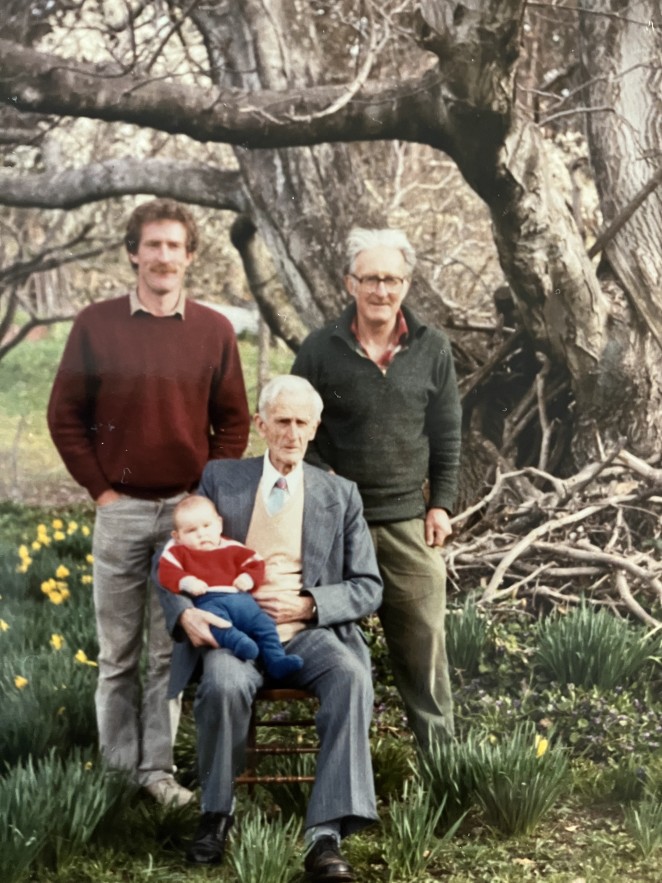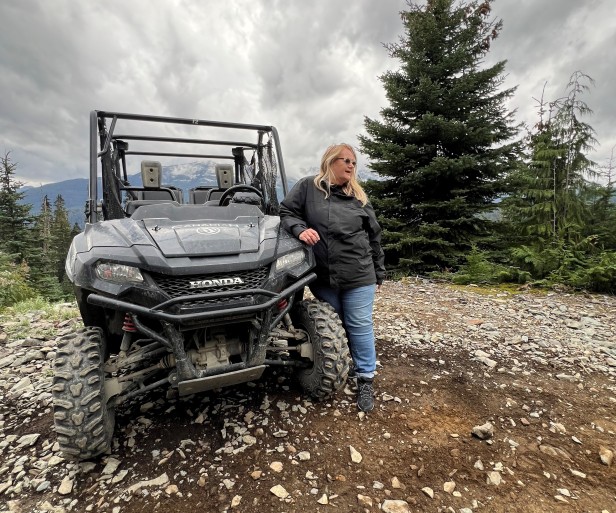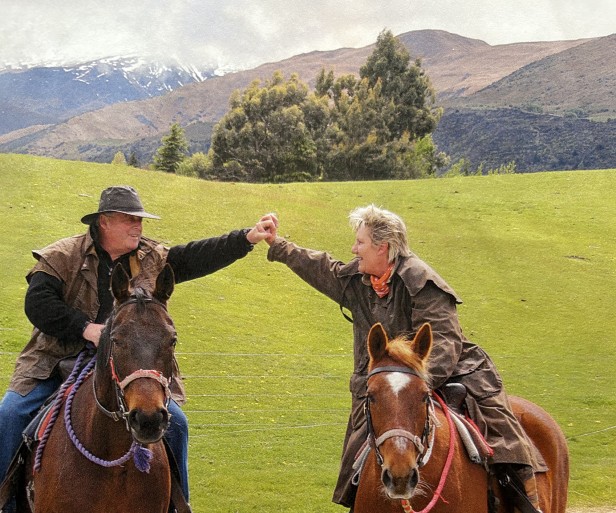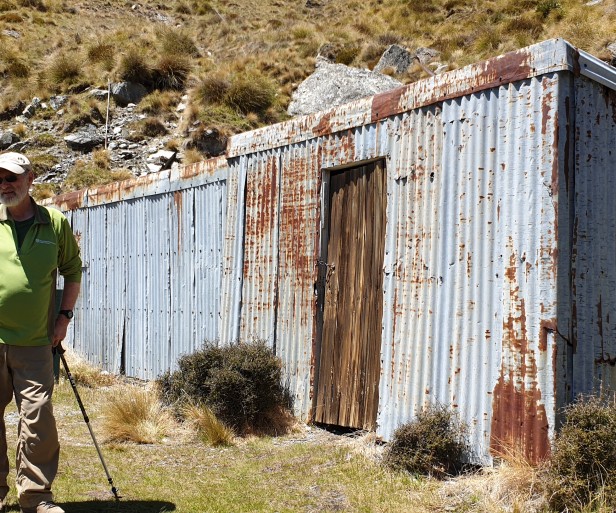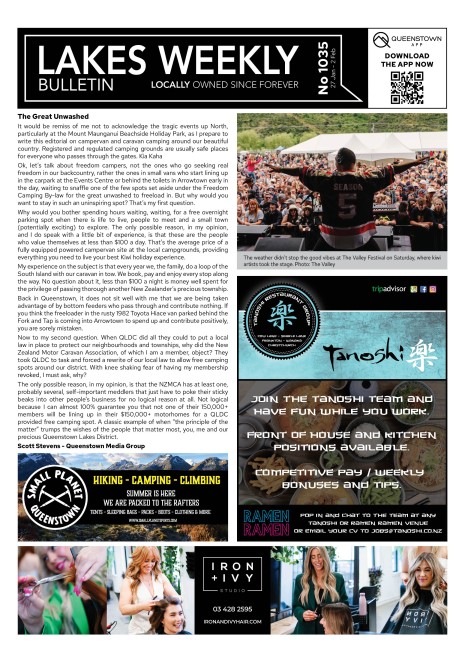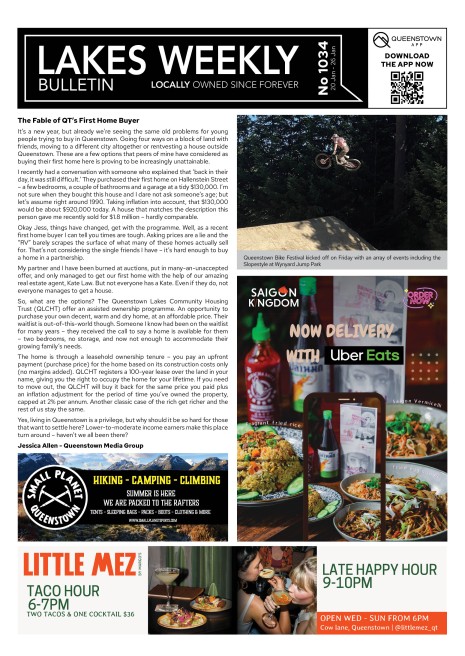Richard Short - Born of gold….

Local heritage doesn’t come much richer than that of Queenstown builder Richard Short whose grandfather, shut out of a wealthy inheritance, turned to goldmining at Skippers and bought all of Battery Hill with the profits.
“The property stretched from Marina Creek up the hill above Frankton Road to above where Perkins Road is now and across to the creek beside Alpine Village,” Richard recalls.
Jack Short had married a local Skippers girl, Beatrice – the only daughter of a Skippers dredge master at Maori Point, who’d arrived from Port Chalmers. “It was the Great Depression and Beatrice’s father would’ve said all that would be worth anything then was gold.” They got enough to buy Battery Hill, subdividing sections off gradually.
The old house on Battery Hill had previously been used as a nurse’s home and a doctor’s surgery. Jack and Beatrice grew flowers and masses of vegetables there which they sold to local hotels. Beatrice’s dried flower arrangements were a hit with passing Asian tour buses. Richard and his two siblings picked raspberries, strawberries, blackberries, currants, and rosehips, all growing wild on the hillside and the Shorts sold the fruit and produce to the locals. Richard’s father Allen became an accomplished gardener, working in the maintenance team at Queenstown Gardens for some 30 years.
An old DC generator sat in the family shed, once used by goldminers working the stamp battery above Battery Hill. It was used for lighting the old house in the early days and eventually went to Lakes District Museum.
Growing up on the family’s Frankton Road property, halfway between Frankton and Queenstown, Richard says they were “pretty isolated”. “There were few homes along Frankton Road then.”
Queenstown and Districts High School was not for pansies. “My class was notorious for fighting and we were constantly being caned. A few toe rags would try dunk us younger kids under the water fountains.”
“Ian Daniel [the teacher] made us go swimming in the unheated, open-air Ballarat Street pool in August. There’d be a skin of ice on the pool. I was constantly shivering.”
Some boys shirked school to go deer and goat shooting.
At 16, Richard began a building apprenticeship with Albert de Reus, starting out on the Ambassador Motels with its challenging curved verandahs, enduring “freezing gorge winds” and rain in winter. “It was terrible.”
Dunedin beckoned and his ‘dream job’ – barman at a hotel. He loved it, until the night he and his friends were commenting on a TV comedy they were watching in the bar only to get a hammering by some rather angry, much larger patrons who thought they were talking about them. “I was so smashed up and the boss had to let me go.”
Richard then worked on the Cumberland Street overbridge before Queenstown mate Mark Thomas, now artist, sent him an anonymous letter inviting him to work in construction in Perth. “I took a punt and was sitting outside the boss’s office after I arrived to hear, ‘Shorty! You made it!’ Mark, and John Sarginson, were living there in a Salvation Army drop-in house.”
Richard worked in various jobs there and eventually went through the lowest point in his life. “I was at the end of my tether, so I simply cried out to God for help and, man, it was instant. It transformed my life. I’d highly recommend praying in those situations,” he says.
It took a while, but he eventually moved home, a new man, and reconciled differences with his dad. “I’d been a rebel.” He then met wife of 40 years Isla at a local church and after they married, they restored the old Battery Hill house. A short stint in Aussie with their first two kids didn’t end well with Richard owed money by a building company after it failed. They returned to Auckland where he worked for the Otahuhu Transmission Plant before they came back to Queenstown.
Richard became very involved in his church and was a member of the local Deerstalkers Association for a time.
In the late 1990s they headed to Mexico on a mission trip before taking their two primary age kids through South America for three months. “People said it was crazy to do that, and some parts were, but we had a great time.”
In 2017 Richard, Isla and youngest daughter Neve travelled to Cambodia to help Mark and Julie Hillary set up a school for a poor community. “The school then was a tin shed. Everything was a mess. They had nothing. We repaired the tables and seating and took paper and pencils. We built them a set of swings, seesaw, and flying fox.” With inside temperatures of 50degC and 40degC outdoors it was hot work, but the delighted faces of the children made it all worthwhile.
Richard and Isla also delighted just prior to 2020 lockdown in having their kids home ready to build with five grandchildren under six and two on the way – 12 in the family home. “It was a busy lockdown.”
